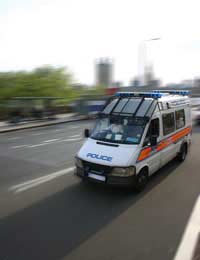Using a Mobile to Seek Help in an Emergency

In an emergency, mobile phones can play a critical role but they are not infallible and cannot always be relied on to save the day.
The Lifesaver
In such a relatively short life, the mobile phone has already earned a formidable reputation as a brilliant lifesaver. Whether stranded on a mountain top, aboard a sinking ship or trapped in the wreckage of a car crash, the mobile can prove an effective means of contacting the emergency services.And with around 95% of the UK population carrying a mobile phone on their person, it is now an almost omnipresent lifeline in times of a safety crisis.
Immediate Alert
Rather than relying on bystanders or concerned friends and family members, the mobile phone enables those caught up in an emergency situation to initiate their own rescue operation by using their pocket handset to dial 999. Those that see others in difficulty can also raise an immediate emergency alert rather than waste valuable time rushing off to find help.The sooner the emergency services are alerted into taking action, the better the chances of a positive outcome, and the mobile phone is renowned for the role it plays in helping to achieve this.
Dialling 999
If you find yourself in an emergency situation or witness others in trouble, then a mobile should be used to dial 999 immediately. If you are in an area easily reachable by car or foot then you need to ask the operator for the police. The coastguard is responsible for emergency situations in coastal areas, such as beaches and cliff paths, and mountain rescue takes care of hiking or climbing environments.The operator will ask for the following information:
- the incident location – any specific information like place and street names, or a national grid reference if in a remote area, will be requested.
- nature of the emergency – describe the incident and any suspected injuries.
- the number of people involved and injured.
Mobile Phones Cannot be Relied On
Mobile phones can be invaluable in an emergency but they are not infallible and performance at critical moments can be hampered by poor signal coverage and a failing battery. After following the basic rule of always telling someone where you are going and when you plan to be back, here are some tips to help you get the most out of a mobile phone when on a journey:- fully charge up the mobile battery before setting off.
- arrange to make calls to a home base at particular times or points in the journey.
- preserve battery power by keeping the phone switched off between calls and by keeping call times to a minimum.
- keep the phone in a plastic bag somewhere warm but where the ring is still audible.
- having made a connection in areas with poor coverage, stay still to avoid losing it mid-conversation.
- if you are unable to make a call because of poor signal then try sending an SMS instead.
- if your phone has no coverage and you are in a group, try using the other phones. If not then consider taking the phones to a more prominent but easy to find location.
No Substitute for Safety Preparation
Mobile phones are potential lifesavers but they should not be used as a substitute for appropriate preparation and equipment. One mountain rescue service said that 60% of their call-outs were basically hikers that had lost their way or sustained mild injuries due to overexertion, and who had used a mobile phone as their first line of defence if something went wrong.
Related Articles in the 'Safety' Category...
- Cell Phone Radiation - Facts and Figures
- Mobile Phones Targeted at Toddlers?
- Environmental Impact of Mobile Phones
- Mobile Phone Safety: Myth or Fact?
- Mobile Phones: Roaming Hazards
- Mobile Phones and Remote Workers
- Mobiles in Rescue Situations
- How Stolen Mobiles Can Be Tracked
- Security Issues for Mobile Phones
- How to Prevent Mobile Phone Theft
- Mobiles and Privacy Issues
- Mobile Phones and Pedestrian Safety
- Mobile Banking: Security and Fraud Issues
- What if Your Mobile Phone Gets Stolen?
- Mobile Phones and Teenage Safety
- Should Younger Children Have Mobile Phones


Re: Mobile Phone Regulations in the Workplace
The COMMUNICATION is vital but also the use of phone is vital but i agree that should be done moderate in a…
Re: Mobile Phone Regulations in the Workplace
Is it right for a cleaner to take photos of of Privett residents flat on his mobile ore is it a a breach of gdpr
Re: Mobile Phone Regulations in the Workplace
Our company which is a small busy local Restaurant in Vermont frowns on employee's smartphones unless in a…
Re: Types of Mobile Phones for Visually or Hearing Impaired
Mario is partially sighted and quite deaf.Phones I have tried I cannot hear we'll nor see well…
Re: Mobile Phone Regulations in the Workplace
We as a team were given a warning over mobile phone usage however due to some irresponsible colleagues the…
Re: Mobile Phone Regulations in the Workplace
We cannot use a phone at work. I have son who going at nursery and he got astma wery often nursery need to…
Re: Mobile Phone Regulations in the Workplace
Wee yin - Your Question:We have been told that we cannot have our phones out in the office desk and they have to…
Re: Mobile Phone Regulations in the Workplace
We have been told that we cannot have our phones out in the office desk and they have to be on silent not vibrate…
Re: Mobile Phone Regulations in the Workplace
From a security officer prospective. I work in a gatehouse where there are CCTV monitors. Can I use my personal…
Re: Mobile Phone Regulations in the Workplace
How on earth can you increase the production in work when mobile phones are in the mix. They should only be…